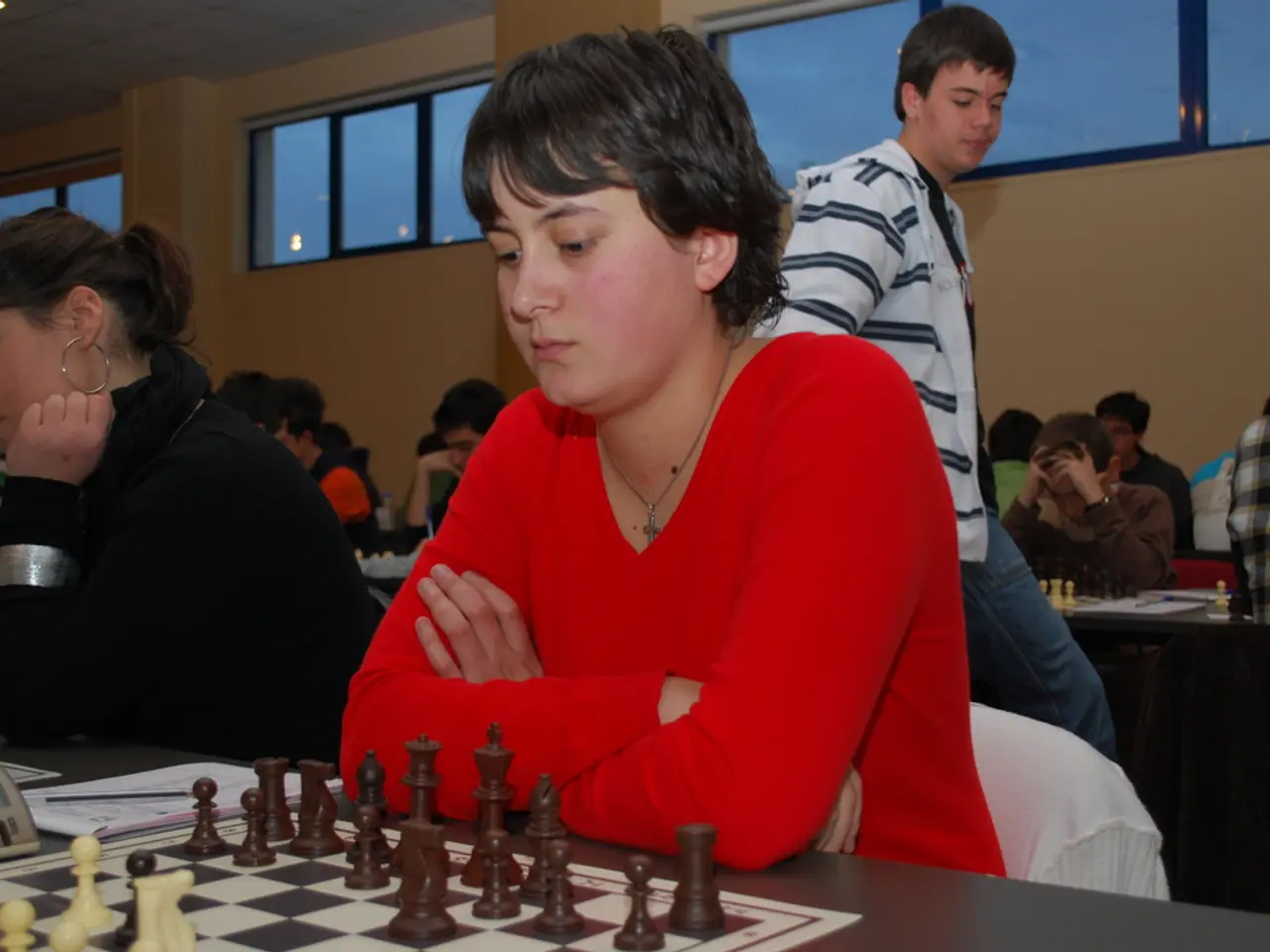Prepare for defeat against Transformers on Lichess chess platform
=====================================================================================
In a groundbreaking study, researchers have demonstrated the ability of large transformer models to play chess without relying on memorization or explicit search algorithms, marking a significant shift in how AI systems can learn strategic decision-making.
The transformer-based models were tested against three training targets: action-values, state-values, and behavioral cloning, to see which approach best supports chess planning. The models achieved nearly grandmaster-level ratings, especially when predicting action-values, with an impressive Lichess blitz Elo of 2895.
The ChessBench dataset, containing 10 million annotated chess games by Stockfish, was used to train the transformer models. During training, board states were labeled as "bins" representing different levels of confidence or likelihood for moves.
The study's findings suggest that large transformers can handle planning problems without search algorithms, challenging the traditional reliance on explicit search algorithms and handcrafted evaluation functions in chess engines.
- Learning from Raw Data Without Hand-Crafted Heuristics
Traditional chess engines heavily rely on explicit search algorithms and handcrafted evaluation functions or massive memorized opening/endgame databases. The transformer-based method learns directly from raw game data, capturing strategic patterns implicitly rather than through explicit rules or search trees.
- Improved Generalization and Robustness
By not depending on memorized moves or brute-force search, transformer models can potentially generalize better to novel or previously unseen scenarios. This robustness is crucial for real-world planning where conditions often change, and hard-coded rules or exhaustive search are impractical.
- Scalability to Complex, Sequential Decision Problems
Transformers excel at handling long-range dependencies and sequences, making them well-suited to tasks requiring planning over extended horizons. In strategic games like chess, this translates to a deeper understanding of positional dynamics rather than surface computations.
- Reduced Reliance on Domain Expertise and Search Infrastructure
Eliminating the need for explicit search algorithms or extensive domain-specific tuning lowers barriers to applying such models in new domains. Strategic decision-making problems in fields lacking structured heuristics or with high complexity could benefit from this autonomous learning approach.
- Potential for Transfer Learning and Multitask Strategy Models
Transformers trained on diverse strategic decision data could transfer knowledge across different domains or problem types. This flexibility enables building more general AI systems capable of adapting to varied strategic challenges beyond a single game or task.
- Challenges and Future Directions
While promising, this paradigm requires vast amounts of training data and computational resources. Furthermore, understanding the internal “reasoning” of large transformers remains difficult, which impacts interpretability—a crucial feature for real-world planning systems that require accountability. Ongoing research into model explainability and efficiency will be necessary.
Despite the strong performance, the models still fell short of engines like Stockfish when making quick, tactical moves. The transformer predicts which moves have the best outcome from all possible legal moves (Action-Value Prediction), while State-Value Prediction evaluates potential outcomes from a board state.
The study also demonstrated that the models could handle novel board positions, proving that the transformer learned strategy rather than relying on memorized moves. AI models were tested against well-known chess engines like AlphaZero and Leela Chess Zero.
The transformer's performance drops significantly when playing non-standard chess games, like Fischer Random Chess. Behavioral Cloning, a method where the model mimics the moves of the top-rated chess engine, was also used in the study.
This novel approach of training large transformers to play chess without relying on memorization or explicit search introduces a paradigm of AI that learns strategic decision-making end-to-end from data, emphasizing pattern recognition and sequence modeling over brute-force computations. This advances AI capabilities towards more flexible, scalable, and general approaches to real-world strategic planning and decision-making problems.
- The new approach of using transformer models in chess conceivably changes the landscape of AI, as it learns strategic decision-making not by relying on memorized moves or explicit search algorithms, but through recognizing patterns and modeling sequences from raw game data.
- With the ability to handle planning problems without search algorithms, artificial-intelligence Systems powered by transformer-based models could exhibit improved performance in decision-making tasks, thereby demonstrating a potential shift from traditional AI architectures that heavily rely on explicit search algorithms and handcrafted heuristics.




